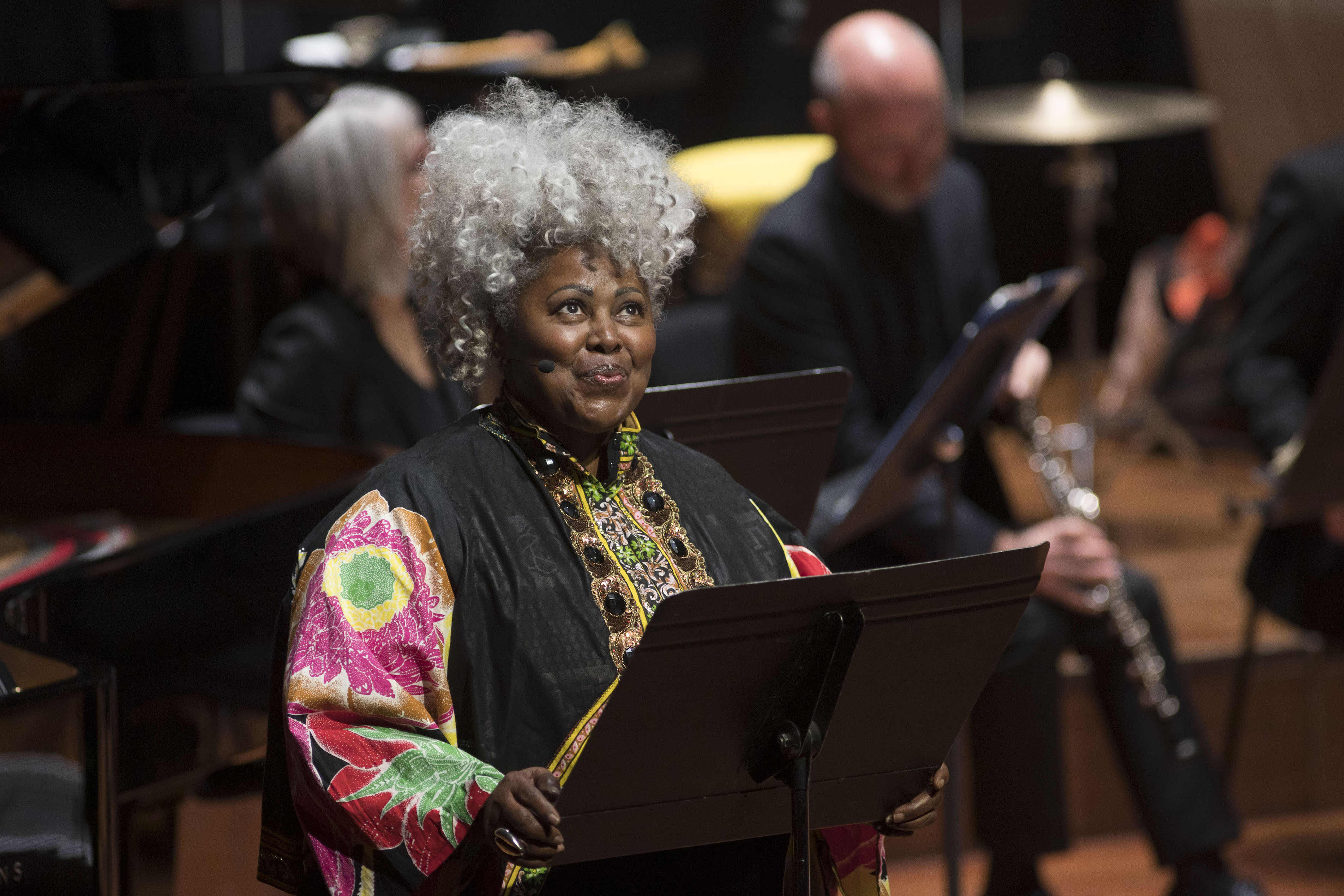“Underneath the abject willow/ Lover, sulk no more;/ Act from thought should quickly follow:/ What is thinking for?” In 1936, early in their tempestuous friendship, WH Auden wrote a poem for Benjamin Britten that urged the younger artist to pursue his passions – musical and erotic – and curb his fearful longing for comfort and safety.
The poet’s hectoring insistence that the composer should embrace audacity and risk marked a partnership that began in hero-worship – the timid, tentative Britten’s for the bold and brilliant young bard – and ended in the composer’s violent rejection of his one-time mentor. When, in 1953, Auden wrote to criticise Gloriana, Britten tore the letter to shreds. Yet when Auden died in 1973, the news prompted “a storm of tears” in Aldeburgh.
The first in a planned series of literary-musical soirées presented by the City of London Sinfonia with the London Review of Books, Perfection of a Kind brought this fertile, fraught relationship to the stage of the Queen Elizabeth Hall. Conducted by Matthew Kofi Waldren, the Sinfonia’s melange of words and music enlisted a stellar cast that included Alex Jennings and Barrie Rutter as (respectively) the musical and literary giants, with West End musicals doyenne Johnnie Fiori (pictured below) as vocalist in cabaret songs from the 1937 experimental drama The Ascent of F6. The cabaret-cocktail approach worked a treat, and the QEH audience justifiably relished it. However, this format did leave a yawning gap. 
Jennings and Rutter projected not just the words of the two artists themselves but snippets of later commentaries by critics, biographers and dramatists (an extract from Alan Bennett’s play The Habit of Art). We heard how, in the 1930s, the pair bonded as restless apprentice virtuosos who could command almost any mainstream style but yearned to stretch the traditions they inherited: “brilliant ventriloquists” both, but also change-hungry innovators. The Sinfonia’s tight and agile playing let us appreciate young Britten straining at the formal leash: in the Simple Symphony, given in a punchy string-quartet reduction, and the exhilarating early Sinfonietta – executed with panache all round, and lit up by Karen Jones’s flute. Alexandra Wood led an ensemble that brought crunch, bite and sinewy control to Britten’s youthful seesaw between pastoral nostalgia and hard-edged urbanity. In the selections from F6, Britten’s bracing jazz modernism glittered, with the two pianists (Berrak Dyer, Cliodna Shanahan) and twin percussionists (Glyn Matthews, Jeremy Cornes) reminding us of the jagged rhythmic shock that such work brought to the staid West End scene of 1937.
The evening’s show-stopper, though, came with the celebrated words and music for the 1936 GPO Film Unit documentary Night Mail: a little masterpiece of the accessible, community-minded art that would later mean so much to Britten, but which the strenuously cosmopolitan Auden soon rejected as a talent-sapping trap. Britten’s delicious train music chugged, raced, snorted and hooted; Rutter (pictured below) launched gloriously into Auden’s swaying, rattling script, making it over as an exuberant Thirties rap (“The chatty, the catty, the boring, adoring,/ The cold and official and the heart’s outpouring…”).













Add comment